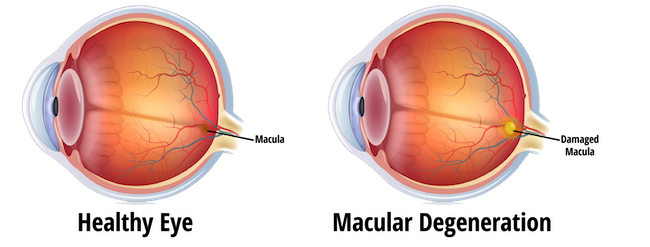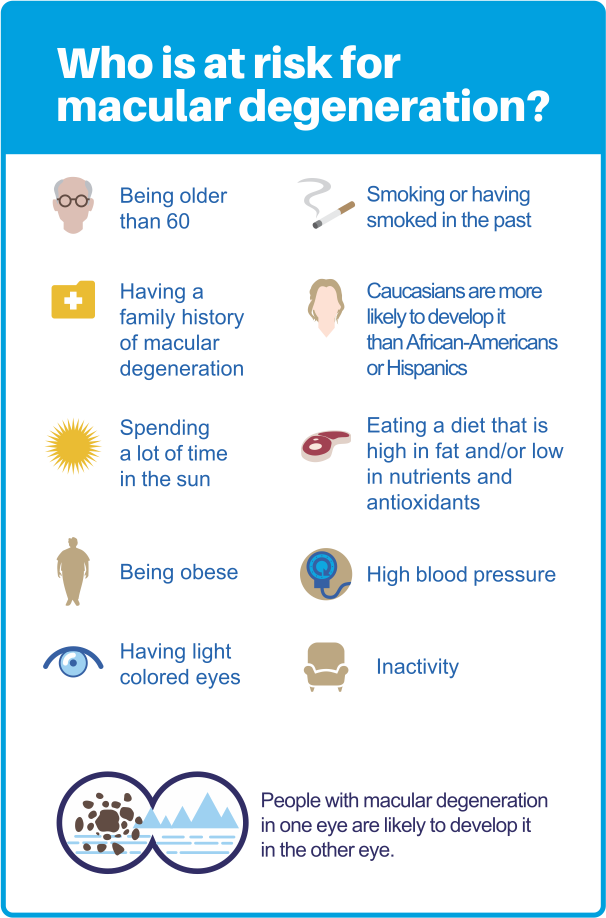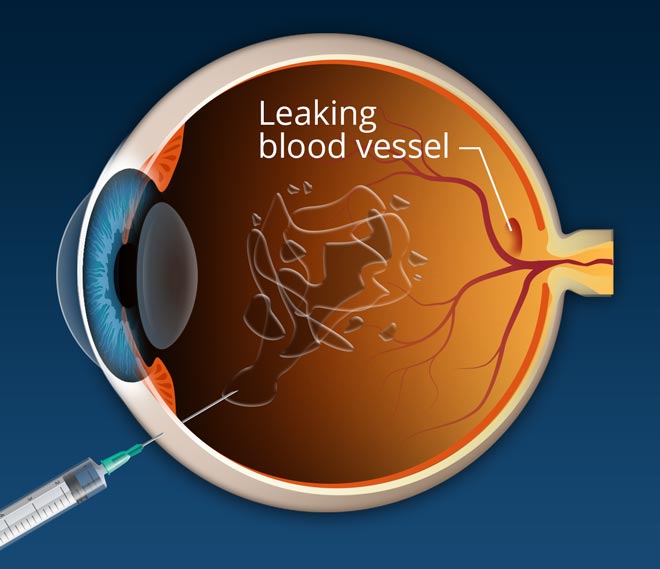AMD (Age-Related Macular Degeneration)
As we age, the part of our vision system responsible for sharp, central vision—the macula—gradually begins to wear down, a process known as age-related macular degeneration (AMD). The macula is crucial for tasks such as reading, recognizing faces, and driving, as it helps focus light and detail. With AMD, this vital part of the eye deteriorates over time, leading to a progressive loss of central vision. One of the challenges of AMD is that it often develops slowly, and the early stages can be difficult to detect without professional eye exams. By the time noticeable symptoms appear, such as blurry or distorted central vision, irreversible damage to the macula may have already occurred. This is why early detection is so critical. At our practice, we are committed to identifying potential signs of AMD during routine eye exams, even before symptoms become apparent. If we detect any signs of AMD, we will promptly develop a personalized treatment plan to slow its progression and help protect your vision. This may involve lifestyle changes, medication, or referral to specialists, depending on the specific stage and type of AMD. Early intervention can make a significant difference in preserving your vision and maintaining your quality of life.
Age-related macular degeneration (AMD) is a condition that specifically affects the macula, which is the small but critical area located at the center of your retina. The macula is responsible for your central vision, which allows you to perform tasks that require detailed vision, such as reading, recognizing faces, and driving. It is incredibly sensitive and plays a key role in focusing light and processing the fine details of the world around you. Because the macula is so delicate, any damage to it can result in permanent vision loss. Unlike other parts of the eye that may be able to heal or recover from damage, once the macula is harmed, it cannot regenerate, making the preservation of its health crucial. As AMD develops, it gradually disrupts the macula’s ability to process and focus light, leading to a decline in central vision. The condition typically progresses slowly, and because early stages may not present noticeable symptoms, it can go undetected for years. However, by catching the early signs of AMD, we can take proactive steps to manage the condition and slow its progression. Detecting AMD in its initial stages is vital because once symptoms like blurred or distorted vision appear, the damage to the macula is usually irreversible. Early intervention can significantly reduce the impact of AMD on your daily life and help protect your vision in the long term.


Symptoms
Age-related macular degeneration (AMD) can develop gradually, often without noticeable symptoms in its early stages. By the time significant vision loss occurs, irreversible damage to the macula may have already taken place. This makes early detection crucial in preventing further damage and preserving vision. AMD has several indicators, and if you experience any of the following symptoms, it’s important to schedule an eye exam with your eye doctor as soon as possible to assess your eye health: blurriness, especially in your central vision, which makes tasks like reading and driving difficult; visual distortions, where straight lines may appear wavy or curvy, which can disrupt daily activities; issues seeing in low light, which can affect your ability to navigate in dimly lit environments; duller colors, where colors may appear less vivid than they used to be; increased dependence on brighter light for close-up tasks like reading or sewing, which can indicate a decline in vision; difficulty recognizing faces, a common early symptom as AMD affects central vision; and blind spots in your field of vision, which may make it harder to see certain objects or details in your surroundings. If you notice any of these issues, don’t delay—early intervention can help slow the progression of AMD and preserve your vision for the future.
AMD Treatment and Management
We understand how critical it is to detect eye conditions as early as possible to ensure the best outcomes for your vision. That’s why we invest in state-of-the-art diagnostic technology that allows us to identify even the smallest changes in your eyes and vision. This advanced equipment helps us to monitor the health of your eyes closely and catch conditions like age-related macular degeneration (AMD) in its early stages, often before noticeable symptoms arise. By detecting AMD and other eye diseases early, we can take proactive steps to slow their progression and preserve your vision. Our skilled team is dedicated to providing you with personalized care and developing treatment plans tailored to your specific needs, ensuring that we do everything we can to maintain your eye health and keep your vision clear. With early detection and appropriate intervention, we can help protect your sight and support your long-term eye health.


